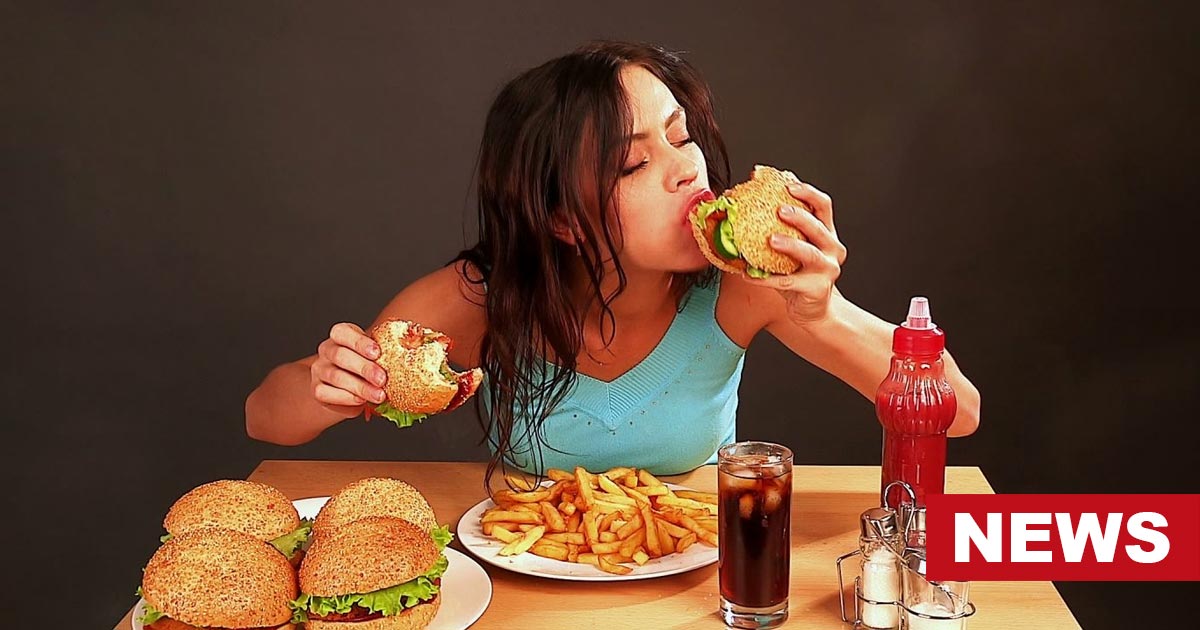- Researchers explored how stress amplifies food cravings, particularly when it comes to sugary and palatable food.
- The findings provided insights into the process by which stress-ridden poor mental health fuels obesity, namely, disordered eating and weight gain.
The Science Behind Stress Eating
Stress has a profound impact on the brain and its regulation of appetite and food intake. When stressed, the body releases cortisol, commonly known as the stress hormone. Cortisol triggers an increase in appetite, specifically for high-calorie and palatable foods.
This response is rooted in our evolutionary past, as our ancestors relied on calorie-dense foods during times of stress to ensure survival in challenging situations. However, in modern society, where stressors are more psychological than physical, this response can lead to overeating and weight gain.
How Stress Amplifies Food Cravings
Research has revealed several mechanisms through which stress amplifies food cravings, particularly for sweet and highly palatable foods. Chronic stress disrupts the brain’s reward system, which is responsible for regulating feelings of pleasure and satisfaction.
Stress inhibits the activity of the lateral habenula, a region involved in suppressing reward signals associated with eating. Consequently, stress decreases the brain’s ability to recognize signals of fullness, leading to excessive food intake.
Moreover, stress promotes the release of neuropeptide Y (NPY), a molecule produced by the brain in response to stress. NPY stimulates cravings for high-carbohydrate and high-fat foods, as these types of foods provide temporary relief from stress by triggering the release of serotonin, a neurotransmitter associated with mood regulation.
The combination of altered reward processing and increased NPY levels creates a perfect storm for stress eating and weight gain.
In a recently published study, researchers at the Garvan Institute of Medical Research also claimed that chronic stress disrupted the brain’s typical satiety response, resulting in continuous reward signals that encouraged the consumption of highly palatable food.
This effect was observed in the lateral habenula, a brain region known to suppress such reward signals under normal circumstances.
How Poor Mental Health Fuels Obesity
Poor mental health can contribute to obesity through various mechanisms. Individuals experiencing mental health issues such as depression, anxiety, or chronic stress often turn to food as a coping mechanism, leading to emotional eating and excessive calorie intake.
Professor Herzog, the senior author of the aforementioned study published in Neuron, elaborated on his findings: “In stressful situations, it’s easy to use a lot of energy and the feeling of reward can calm you down—this is when a boost of energy through food is useful. But when experienced over long periods of time, stress appears to change the equation, driving eating that is bad for the body long term.
This research emphasizes just how much stress can compromise a healthy energy metabolism. It’s a reminder to avoid a stressful lifestyle, and crucially—if you are dealing with long-term stress—try to eat a healthy diet and lock away the junk food.”
Additionally, certain psychiatric medications can cause weight gain as a side effect. Moreover, poor mental health can disrupt sleep patterns, decrease motivation for physical activity, and impair self-care behaviors, all of which can contribute to weight gain and obesity.
Addressing Stress Eating And Obesity
The recognition of the connection between stress eating and obesity is crucial for developing effective strategies to address this issue. Strategies to mitigate stress eating and prevent weight gain include engaging in stress management techniques such as meditation, yoga, or physical activity, cultivating emotional awareness and practicing mindful eating, adopting a balanced and nutritious diet, and seeking professional support from healthcare professionals.
Understanding the science behind stress eating and its impact on obesity empowers individuals to implement these strategies and prioritize their overall well-being.
Know More About –
Related Articles –
- 5 Effective Ways To Train Your Brain To STOP Overeating
- Why Giving Up On Emotional Eating Will Not Help You Lose Weight
- 8 Signs Of Holiday Binge Eating And Coping Techniques: Finding Balance In Festive Feasts




























